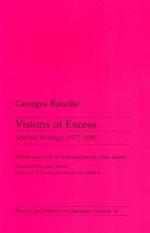
|
| Name: _________________________ | Period: ___________________ |
This test consists of 5 multiple choice questions, 5 short answer questions, and 10 short essay questions.
Multiple Choice Questions
1. What was the essay "Sacrifices" used as?
(a) A criticism.
(b) A personal essay.
(c) As a preface.
(d) A review.
2. What does Bataille say poor people cannot stop rich people from doing?
(a) Buying influence.
(b) Helping the poor.
(c) Wasting resources.
(d) Eluding prosecution for crimes.
3. What does Bataille say about meaning in "The Sorcerer's Apprentice"?
(a) Things can only have meaning if they motivate actions.
(b) Things cannot have meaning unless they are historical realities.
(c) Things can only have meaning if there is a consensus about them.
(d) Things can only have meaning when they are fictitious.
4. Which of the following does Bataille NOT use as an example of unproductive expenditure without value beyond itself?
(a) Luxuries.
(b) War.
(c) Public gardens.
(d) Art.
5. What does Bataille say the world offers modern man to love?
(a) The progress of capitalism to communism.
(b) A society to be assumed.
(c) Nothing beyond self-interest.
(d) God and religion.
Short Answer Questions
1. What is classical utility theory inadequate to define, in Bataille's opinion?
2. What feeling does Bataille say grows in response to revolutionaries?
3. Where does fascism originate?
4. What does Bataille say is the contradiction in Christians worshiping God?
5. How did Bataille relate to Andre Masson's drawings?
Short Essay Questions
1. Describe Bataille's notion of potlatch.
2. What do Masson's drawing symbolize for Bataille?
3. What flaw does Bataille identify in dialectic philosophy in "The Critique of the Foundations of the Hegelian Dialectic"?
4. When does Bataille date the origin of the Popular Front to?
5. What will cause the death and resurrection of God, in Bataille's account in "Propositions"?
6. How does Bataille portray Engels' interpretation of Hegel's philosophy in "The Critique of the Foundations of the Hegelian Dialectic"?
7. Summarize Nicolai Hartmann's interpretation of Hegel.
8. How does the artist give meaning in "The Sorcerer's Apprentice"?
9. What is Bataille's interpretation of Veblen's theory of conspicuous consumption?
10. How does Alfred Rosenberg clarify the issue of Nietzsche's relationship with the Fascists?
|
This section contains 823 words (approx. 3 pages at 300 words per page) |

|




